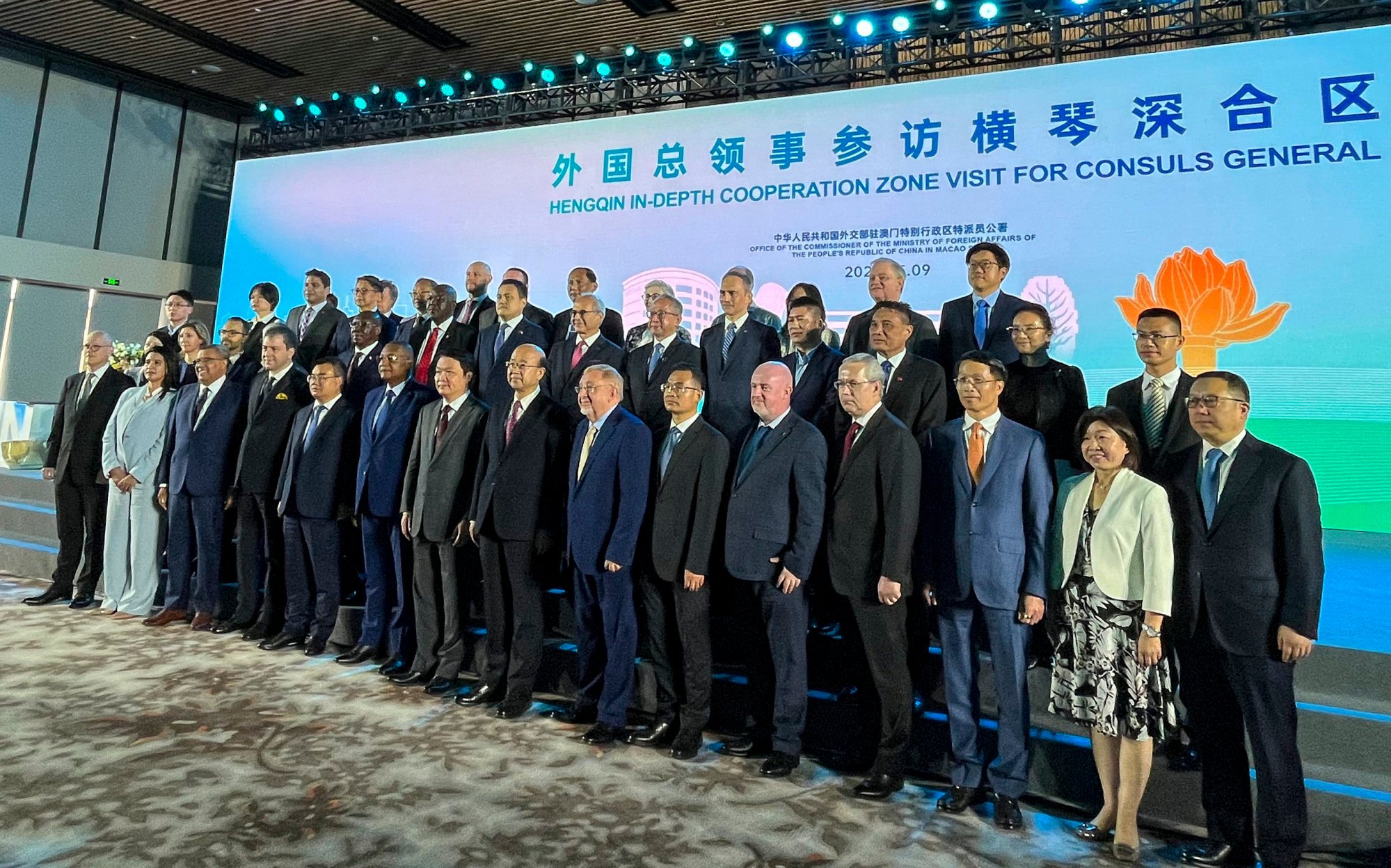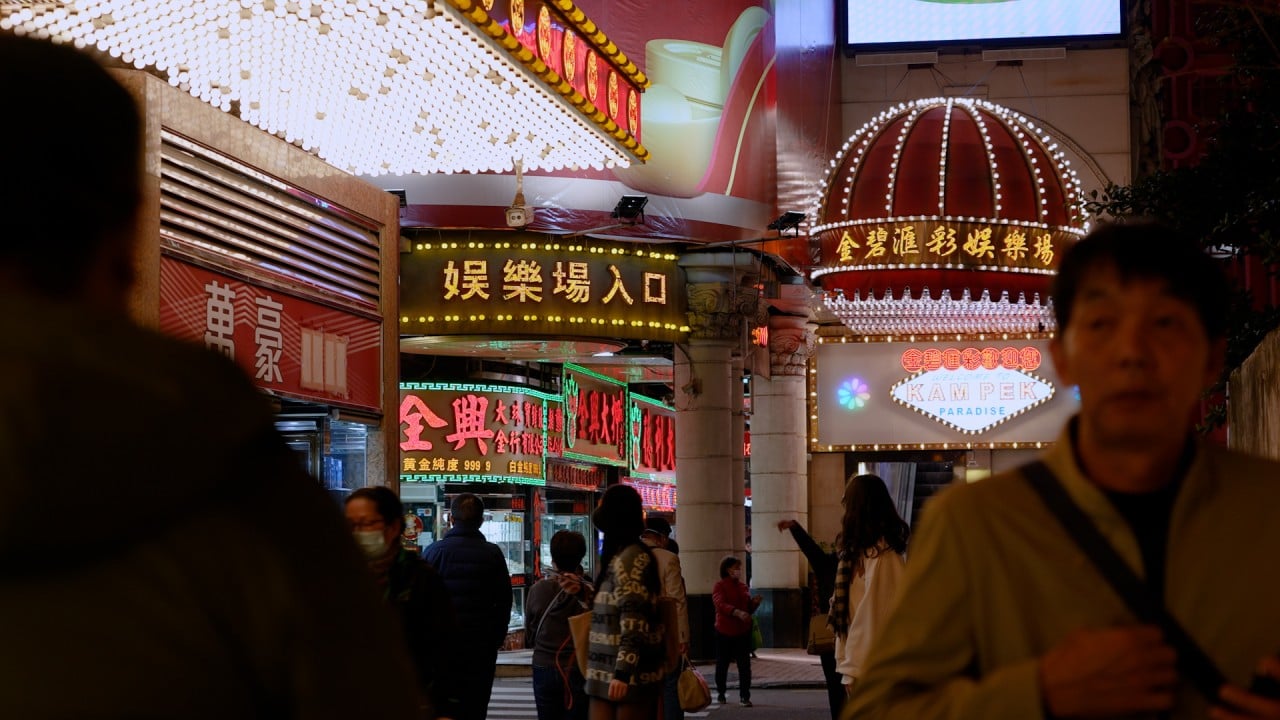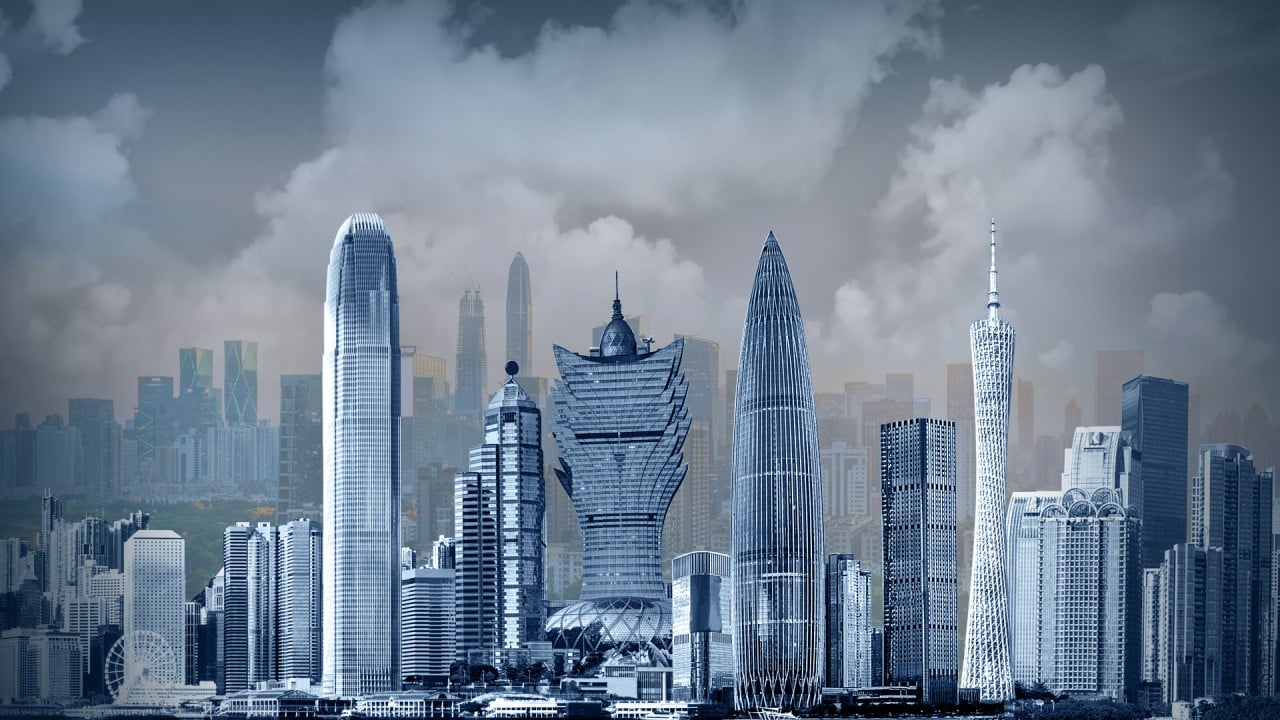
As Macau bets on diversification, what role will neighbouring Hengqin island play in the Greater Bay Area dream?
- Despite effects of Covid-19 pandemic, gaming and junket businesses accounted for a quarter of Macau’s gross domestic product last year
- Hengqin cooperation zone is meant to help it embrace research and development, high-end manufacturing and traditional Chinese medicine
Beijing’s blueprint for the Greater Bay Area development zone, which encompasses nine cities in southern China’s Guangdong province plus Hong Kong and Macau, aims to create an economic powerhouse by 2035 able to compete with similar regions around Tokyo and San Francisco.
Central government officials have often talked up the prospects of Macau-Hengqin cooperation, with Liu Xianfa, the Chinese foreign ministry commissioner in Macau, telling more than 30 diplomats and business representatives at a lunch in Hengqin on May 9 that it was sitting in the region “with the greatest economic dynamism and the highest-level opening-up in China”.
Guilherme Campos, international business advisory manager in Dezan Shira & Associates’ Shenzhen office, said there was a “clear will to change the classical economic paradigm of Macau”, which reverted from Portuguese to Chinese administration in December 1999.
The most important step now is to try to create a critical mass of people living and working here
“If this objective is realised, then this will prove to be one of the positive integration examples between the mainland side of the Greater Bay Area and Macau, something that is already happening between Hong Kong and Shenzhen at a bigger scale,” he said.
But Alexandre Leitao, the Portuguese consul general in Macau and Hong Kong, said he found the concept of the in-depth cooperation zone “a challenge in itself” because “it was completely new”.
Rui Pedro Cunha, the president of the Macau European Chamber of Commerce, said one of the biggest challenges in developing the zone would be attracting people to settle in Hengqin.
“The most important step now is to try to create a critical mass of people living and working here,” he said, adding that Hengqin had what Macau and Hong Kong could not offer – abundant space and the opportunity to build everything from scratch.
China unveils raft of measures to support Hengqin, Qianhai economic zones
“Businesses and businessmen here and elsewhere are going to look into conditions to evaluate whether they are going to commit themselves, for instance, the judicial framework – what kind of law is going to be applied?” he said on the sidelines of a global talent forum held by the China-Asean Greater Bay Area Cooperation Centre in Macau on May 11.
“It’s a wait-and-see approach in a sense that we should not make any rush decisions or positions without understanding what is at stake,” he said, adding that the different legal systems in Macau and on the mainland would make concluding contracts and agreements more difficult.
Macau, the only place in China where casinos operate legally, has an economic base very different from Hong Kong’s international financial centre, Shenzhen’s technology hub, and the Pearl River Delta manufacturing bases of Dongguan, Huizhou, Foshan and Zhuhai.
Gaming and junket businesses accounted for up to 90 per cent of Macau’s gross domestic product (GDP) in the early 2010s, contributing 352 billion patacas at the sector’s peak in 2014, according to government statistics.
Battered by the Covid-19 pandemic, it still accounted for a quarter of Macau’s GDP last year, contributing 42.8 billion patacas (US$5.3 billion). It also provided 20 per cent of the city’s jobs.
As a part of diversification endeavours, the Hengqin cooperation zone is meant to develop scientific and technological research, high-end manufacturing, and traditional Chinese medicine.
“Overall, Macau has been well prepared to diversify its economy in terms of policy planning and making, as well as in concrete actions,” said Lao Keng Chong, director of the Macau Innovation Development Association.
Although “the effect is not obvious at this stage”, Lao said that Macau-Hengqin integration would set a model for companies to use Macau as the base for administrative work, with Hengqin serving as the manufacturing hinterland.
Macau eyes tech including AI in evolution from gaming spot to innovation hub
“The Macau-Hengqin joint development will undoubtedly provide foreign businesses one more option to tap into the Chinese market,” he said.
The Hengqin cooperation zone was established in 2021, with The Conference Board research group highlighting the implementation of policies to attract talent and facilitate foreign investment in industries like advanced manufacturing, traditional Chinese medicine, financial services and e-commerce.
Tax exemptions for businesses and a simplified customs declaration procedure for inbound goods will be implemented, and some innovative measures are also expected to be introduced in terms of cross-border financial management, with the safe and orderly flow of internet data guaranteed.
The Macau Trade and Investment Promotion Institute signed a memorandum of cooperation with AICEP Portugal Global, the Portuguese government’s investment and economic promotion agency, in Lisbon in April to enable further cooperation in new areas such as renewable energy, economic sustainability and the health sector.

“While the historic, cultural and economic links with Macau will certainly help raise interest from lusophone investors regarding the potential of investing in Hengqin, ultimately what will define whether they do deploy their capital there will be, on the one hand, the attractiveness of the facilities and preferential policies,” said Alfredo Montufar-Helu, head of The Conference Board’s China Centre for Economics and Business.
“On the other, whether they see opportunities to build and leverage comparative advantages that can allow them to enter and/or grow their business in China, and globally.”
Pamela Chan, an associate director at Taipa Village Destination, a fund that owns commercial properties in Macau and Hengqin, said the alignment between Macau and Hengqin was a key to enticing foreign businesses.
“In order to create a business-friendly environment that encourages investment and entrepreneurship, both governments should further streamline regulations and procedures, providing incentives for businesses to set up shop, and fostering a culture of innovation and collaboration,” she said.
Macau is being pressured to move away from reliance on gambling
Chan said Macau was striving to diversify its economy, with a legal requirement that the six big casino concessionaires put 90 per cent of new investment into non-gaming development.
“However, it shall take time to diversify as gaming still remains the main feeder of the market,” she said. “The easing of border restrictions since January this year has augured well for the economic recovery, especially in tourist arrivals and gross gaming revenue, which have also recovered to at least 50 per cent of the pre-pandemic level.”
Tim Simpson, an associate communications professor at the University of Macau, said the special administrative region’s readiness for economic diversification was “the million-dollar question”.
“Macau is being pressured to move away from reliance on gambling,” he said. “On the other hand, gambling is Macau’s unique advantage. That’s its asset. It’s always going to have to involve gambling-related tourism, because that’s Macau’s niche.”
Peng Peng, executive chairman of the Guangdong Society of Reform, a think tank based in Guangzhou, the provincial capital, said the integration of Macau and Hengqin made it the bay area free-trade zone with the best development prospects, beating out Qianhai in Shenzhen and Nansha in Guangzhou.
“If the Macau-Hengqin model works, foreign businesses will choose Hengqin to invest in because it has the advantages of being a free-trade zone that Shenzhen and Shanghai don’t have,” he said.
“But of course, the strength in the hi-tech sector that Shenzhen and Shanghai enjoy now is not something that Macau and Hengqin can catch up with in a short period of time.”
Shenzhen – where electric vehicle manufacturer BYD, tech giant Huawei Technologies, internet services firm Tencent and drone maker DJI are headquartered – recorded 6.5 per cent growth in first-quarter GDP, better than Shanghai’s 3 per cent and the nationwide figure of 4.5 per cent.
Ricardo Siu, an associate professor in business and economics at the University of Macau, said the Macau-Hengqin integration model had been formulated “specifically under consideration of the contextual settings in Macau” to strengthen the sustainability of the city’s social and economic development.





